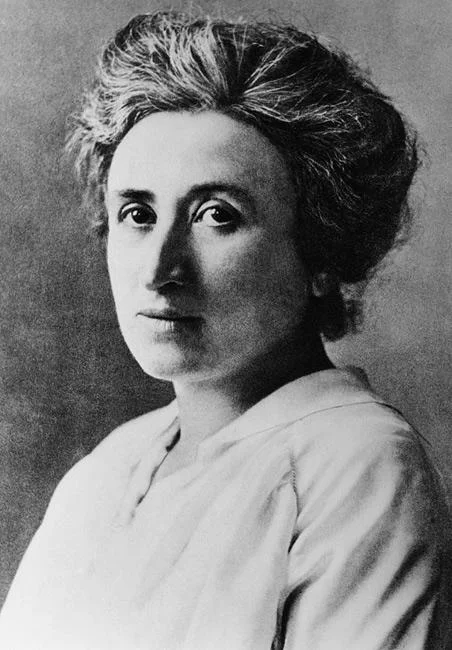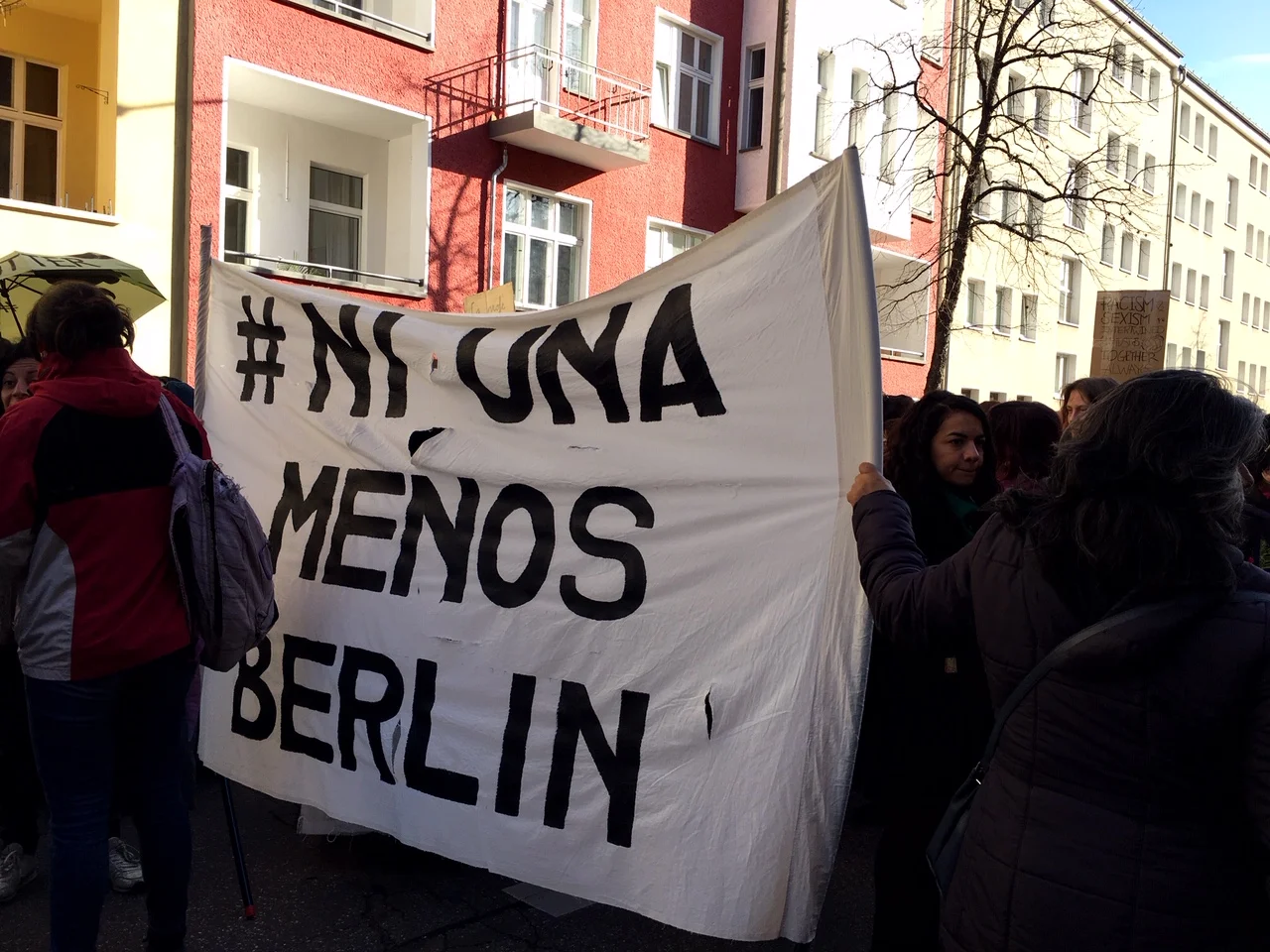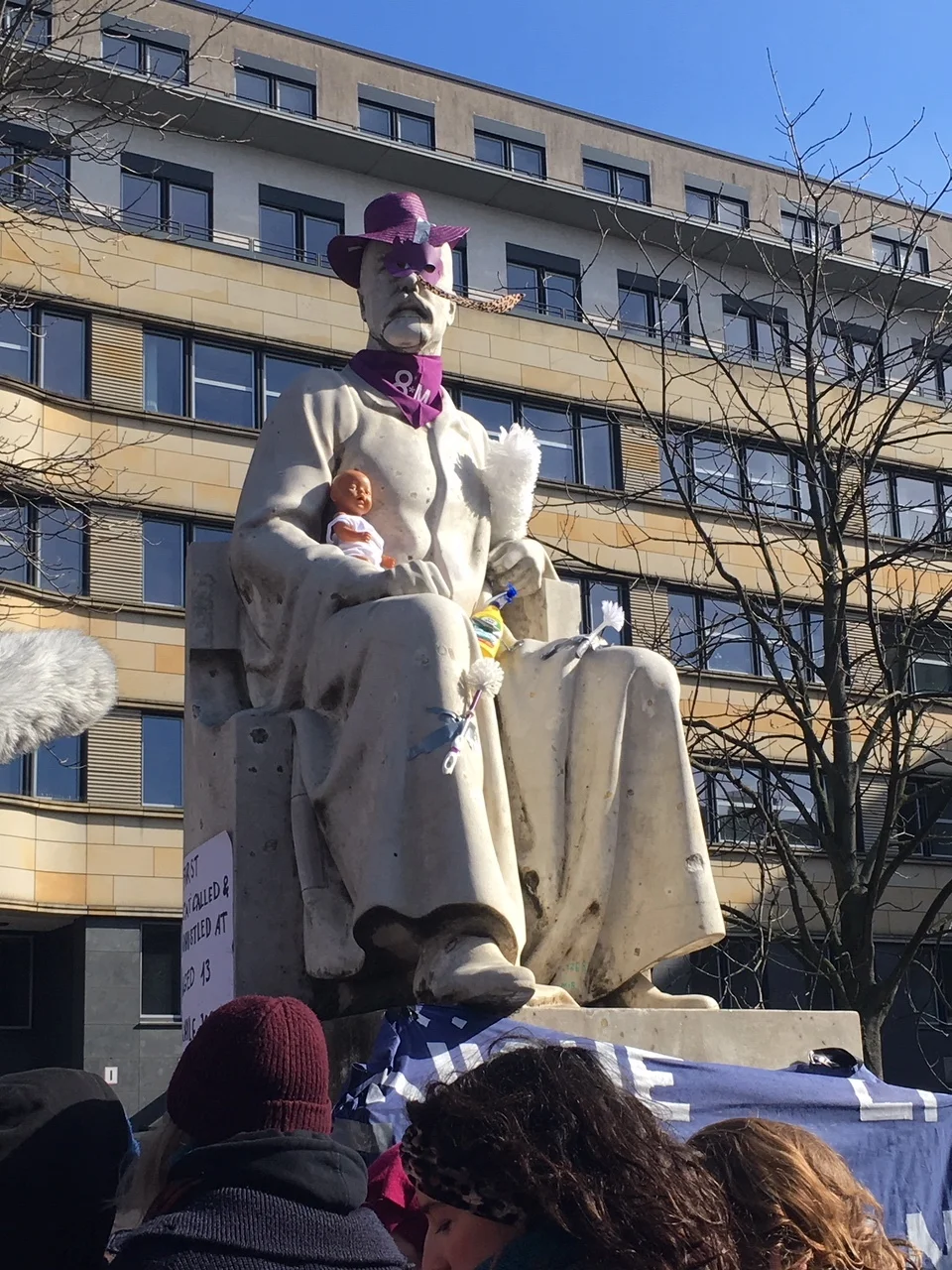Leading up to 8th of March, feminists and queer activists throughout Germany formed a national network and two national conferences (in Göttingen and Berlin) planting the seeds for a new international feminist movement. These initiatives were part of an effort to deepen and integrate the autonomous leftist, pro-choice, and anti-racist networks into a growing feminist movement. The radical character of IWD was not unique to Germany but was part of a thriving international women’s strike movement in several dozen countries including Argentina, Chile, Ireland, Mexico, Spain, and the United States. Not only were people pointing to the productive capacities of womxn’s labour, IWD activists sought to make links to ongoing strike campaigns, environmental initiatives, and immigration issues in Germany.
The strike actions were preceded by a set of events earlier that week, mostly concerning fair wages and precarity in Germany. For one, women editors at neues Deutschland, a leftist German newspaper, went on strike on 7 March leaving blank columns to show the power of their labour. Moreover, this action not only highlighted the wage disparity between men and women in journalism, i.e., which is approximately 21%, but it also called for comprehensive transparency of salary for permanent and freelance journalists.
Abortion rights has also featured into pre-IWD actions with 200 pro-choice activists gathering outside the Ministry of Public Health to oppose Article 218 and article 219a on 7 March. These Nazi-holdover German decrees define abortion as murder and prohibit physicians from advertising abortions in Germany. The day before International women’s day 300 activities gathered outside of the Ministry of Public Health outside calling to end these oppressive policies. The basis of the resurgent movement weg 218/219a echos what women and queer people have been fighting for globally, to have control and autonomy over their bodies.
Strike actions were not merely symbolic but they were articulated by a number of workers who are embedded in current labour struggles in Germany. At 6am, Frauen* Strike activists showed their support for physical therapists who have been leading at 4 week strike at Charité, the largest public health institution in Berlin. As one health worker from that campaign indicated, “when women stop working, the world stands still.” Childcare workers who went on strike earlier in 2019 also gathered at noon for a 400 person strong sit-in at Robert Koch Platz in Berlin. Katrina, a thirty one year old kindergarten teacher spoke about their strike why how their were fighting for justice for “parents, students, and teachers.” The campaign continues because they have initiated a campaign for fair wages for cleaners at her workplace.




